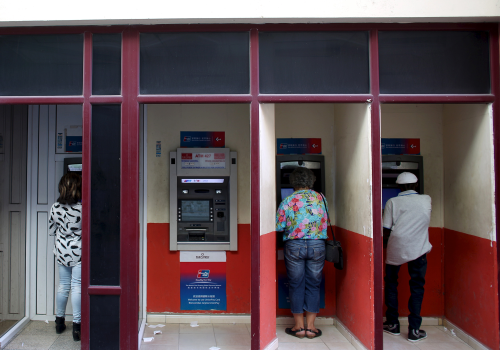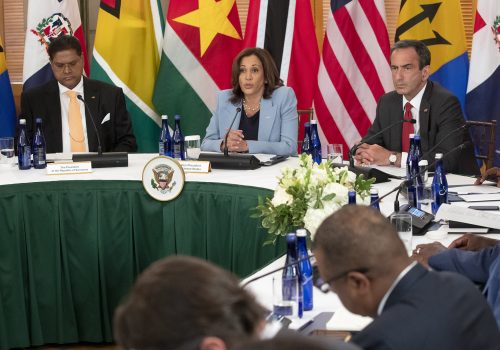September 20, 2022
PACC2030: Quick wins for a US-Caribbean partnership on climate and energy resilience
Countries in the Caribbean Community (CARICOM) are highly vulnerable to the effects of climate change and external shocks, such as Russia’s invasion of Ukraine. The newly announced US-Caribbean Partnership to Address the Climate Crisis 2030 (PACC2030) has the potential to bolster the region’s response to climate change by stimulating locally driven economic growth. PACC2030 represents a renewed US commitment to Caribbean Community (CARICOM) members and is expected to be the central driver of US-Caribbean engagement over the next few years. If successfully implemented, PACC2030 can shape and strengthen US-Caribbean relations for the long term, facilitate US-Caribbean public-private partnerships, and give impetus to regional efforts to advance climate and energy agendas.
PACC 2030’s success is crucial for CARICOM countries and the United States. Apart from the socioeconomic and security threats posed by climate change, natural disasters, and energy insecurity, there are geopolitical considerations. Simply, if the United States cannot support the security and prosperity of its so-called Third Border, CARICOM members in need of short-term solutions to energy challenges and climate financing are likely to look to countries like China, Russia, and Venezuela for assistance. The agreement needs to deliver in the short term to generate confidence that the United States is committed to a sustainable partnership.
This report outlines three quick wins the United States and CARICOM should pursue: finding quick access to financing for CARICOM countries to invest in climate and energy resilience, involving and increasing the role of the US private sector in PACC2030’s implementation, and ensuring that the expertise and technologies brought to the region by the framework are taught, and not just given.
The United States has all the tools and expertise—and now, the will—to support climate and energy resilience in CARICOM countries. But timely implementation is needed over the next few months to show the region that US support and promises are not empty gestures, and instead come with action. This report offers clear next steps towards implementing this ambitious partnership and strengthening US-Caribbean relations in years to come.


